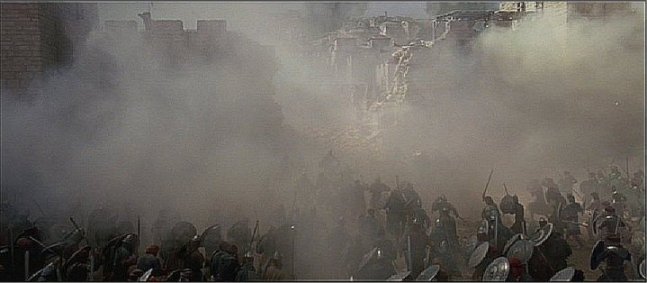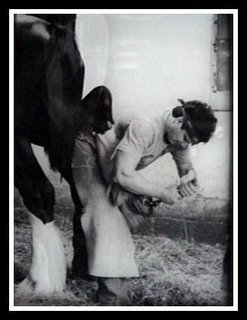Project Hero
This not a double entry, I missed last week so have put it in here.
Our hero this week is CPL Robert Mitchell Jr, Navy Cross

Our hero this week is CPL Robert Mitchell Jr, Navy Cross
Mitchell joined the Marine Corps in early 2001, and was on his second tour in Iraq with the 1st Marine Division when Coalition forces launched a joint U.S.-Iraqi offensive to reclaim Fallujah from insurgents who had fortified the city.
Dubbed Operation Al Fajr (aka Phantom Fury), the assault on Fallujah kicked off on Nov. 8, 2004, and quickly turned into a bloody, street-by-street contest with then-Corporal Mitchell and his fellow Marines in Kilo Company, 3rd Battalion, 1st Marine Regiment, in the thick of the fighting.
Day by day, Mitchell and his squad pushed through the city, methodically clearing pockets of enemy resistance as they progressed. During an assault against an insurgent strong point on Nov. 12, Mitchell was shot through the right tricep, but ignored the wound to help destroy the fortified position, and later refused medical evacuation to remain with his squad.
The next day, an assault against a squat, cement house had gone horribly wrong and several wounded Marines lay trapped inside with several well-fortified insurgents waiting in ambush positions. Mitchell's squad got the call to come and assist.
"When the call came, we knew we had to get them out," said Mitchell. "That became the mission – the only mission."
Once on the scene, the Iowa native quickly established a casualty collection point and organized his men to assault the building. Then-1st Sgt. Bradley A. Kasal, the senior enlisted Marine from another company, joined Mitchell's squad, and together, they charged the building and took up firing positions.
The first floor of the house was littered with dead or dying insurgents, and the wounded Marines lay further inside. Other enemy fighters were in fortified positions on the roof looking down through a skylight, creating a kill zone between Mitchell and the wounded Marines.
Covered by suppressive fire, Mitchell raced through the kill zone toward the wounded Marines as the rooftop insurgents showered the room below with rifle fire and grenades. Shrapnel from one of the grenades peppered the back of Mitchell's legs, but he made it to the stranded, wounded Marines.
"It was great to see him come in," said Cpl. Jose Sanchez, an infantryman from Houston, Texas. "Until he got there I was switching between treating Carlisle [Lance Cpl. Cory] and providing security. When Corporal Mitchell came in, he took over the medical treatment and I could focus on firing at the insurgents."
A trained combat lifesaver, Mitchell went to work on Carlisle's bullet-mangled leg. With his medical supplies running out, he once again orchestrated suppression of the insurgents on the roof to allow a corpsman and another Marine to sprint through the kill zone.
By this time, both Kasal and another Marine, Pfc. Class Alex Nicoll, had been seriously wounded by rifle fire and grenades, and were holed up inside a small room across the kill zone Mitchell had crossed only moments before.
Leaving the wounded Marines in the care of the corpsman, Mitchell once again braved the kill zone, and like before, the insurgents sprayed the short, treacherous path with bullets and grenades. One bullet smashed into Mitchell's M-16A4 assault rifle, shattering the weapon before ricocheting down and into his right leg. More shrapnel slashed Mitchell's legs and face, yet he remained on his feet and made it to Kasal and Nicoll, who was Mitchell's former roommate and longtime friend.
Bleeding profusely, but apparently unmindful of his wounds, Mitchell began treating the others, applying bandages and direct pressure in an attempt to staunch the wounded Marines' blood loss. In the midst of his life-saving efforts, Mitchell scanned the room and saw a wounded insurgent, shot earlier by Kasal, make a move for a weapon laying nearby.
Mitchell quickly drew his combat knife and lunged forward, driving the weapon into the insurgent, eliminating the threat for good before turning his attention back to Kasal and Nicoll. With Marines scattered throughout the small house and the insurgents still firmly entrenched on the roof and a nearby stairwell denying access to any additional forces, the situation was quickly deteriorating.
Through a small, barred window in the room, Mitchell explained to Marines outside the layout of the house and where Marines were located throughout the structure. With this information, the Marines were able to suppress the insurgents on the roof via firing positions on adjacent structures, and one-by-one, extract the wounded Marines from the building which has since been dubbed the "House of Hell."
The photograph of a bloody Kasal, now a sergeant major and himself a Navy Cross recipient, being helped from the house by two Marines is one of the more resonant images of Operation Iraqi Freedom.
Despite his own severe wounds, Mitchell was among the last to leave the house, and did so assisting another wounded Marine. Demolition charges were quickly flung into the house, and the resulting explosion caused the building to collapse, killing the diehard insurgents.
While other casualties from the short, yet intense, fight were loaded onto vehicles and driven to a nearby aid station, Mitchell gathered the remnants of his squad and led them back to the Kilo Company headquarters where he finally received treatment for his wounds.
Less than two weeks later, Mitchell was on his way home from Iraq. Though non-debilitating, his injuries suffered during Operation Al Fajr, combined with those from a mortar attack in July, were enough to convince the Marines the time had come to order Mitchell to leave the combat zone. In a November 2004 interview with a Marine combat correspondent, Mitchell voiced his concerns about being ordered to leave Iraq, but was resigned to his fate.
"Being told by my [commanding officer], sergeant major, platoon commander and all my buddies that I have done enough – that helps to ease my thoughts," said Mitchell. "It is supportive, but at the same time, I came out here to lead a squad and finish the job."









 BlogHop.com
BlogHop.com







0 Comments:
|Post a Comment
<< Home